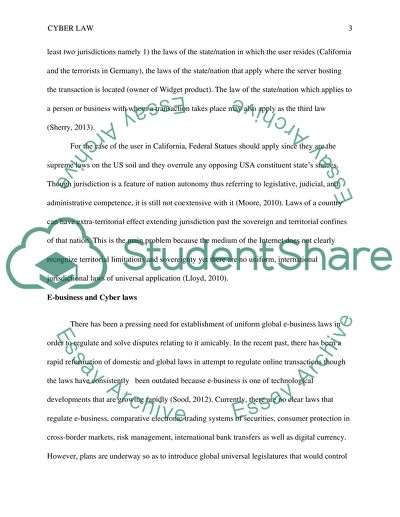Cite this document
(“Cyber Law Essay Example | Topics and Well Written Essays - 1250 words”, n.d.)
Cyber Law Essay Example | Topics and Well Written Essays - 1250 words. Retrieved from https://studentshare.org/law/1650466-cyber-law
Cyber Law Essay Example | Topics and Well Written Essays - 1250 words. Retrieved from https://studentshare.org/law/1650466-cyber-law
(Cyber Law Essay Example | Topics and Well Written Essays - 1250 Words)
Cyber Law Essay Example | Topics and Well Written Essays - 1250 Words. https://studentshare.org/law/1650466-cyber-law.
Cyber Law Essay Example | Topics and Well Written Essays - 1250 Words. https://studentshare.org/law/1650466-cyber-law.
“Cyber Law Essay Example | Topics and Well Written Essays - 1250 Words”, n.d. https://studentshare.org/law/1650466-cyber-law.


